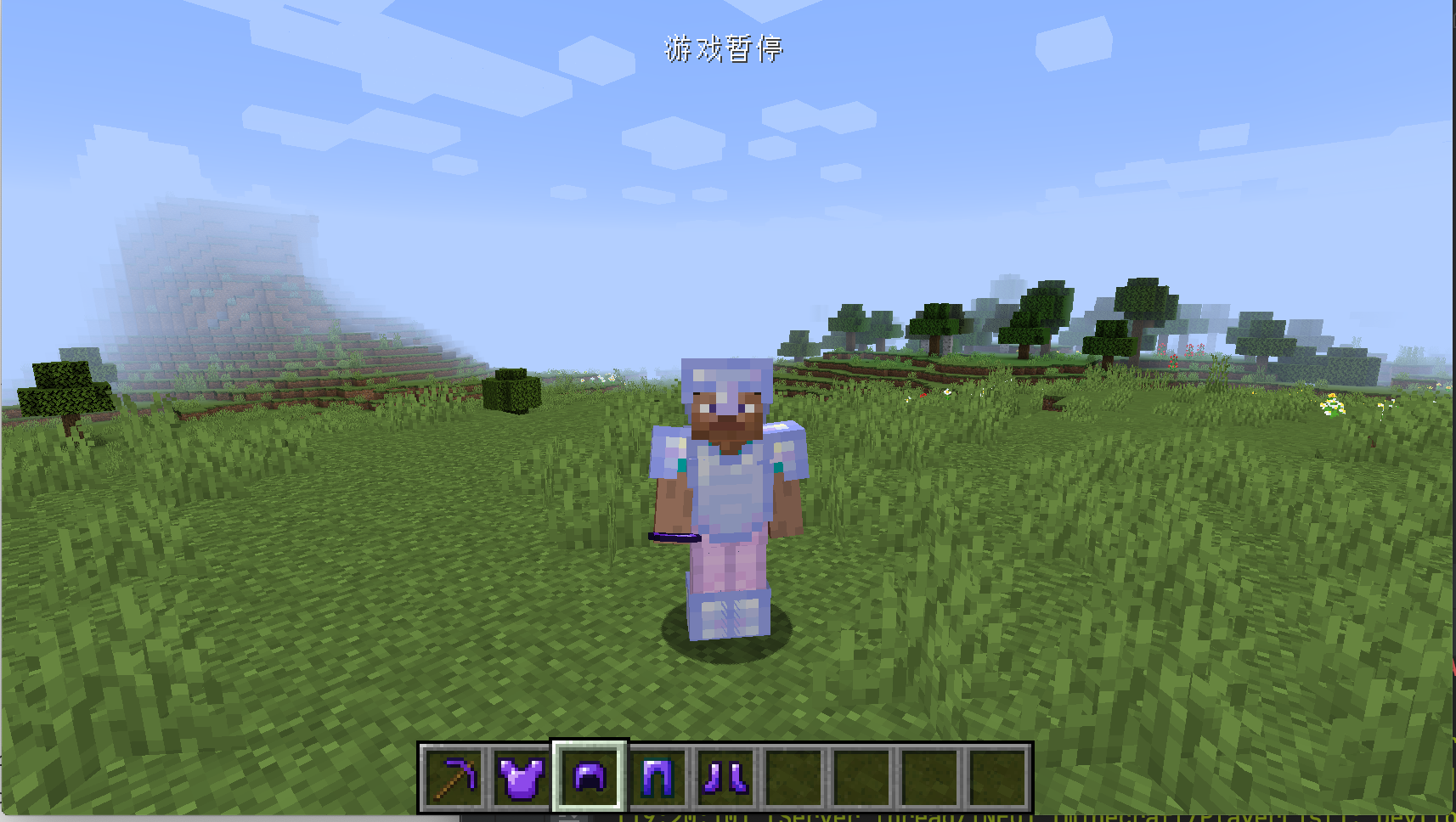装备
在这节中,我们将来学习如何添加一套装备,这里我们以黑曜石装备为例。
和工具与武器一样,装备也有它的等级,也就是IArmorMaterial,这里我们仿照原版的做法,用一个Enum实现这个接口。
public enum ModArmorMaterial implements IArmorMaterial {
OBSIDIAN("obsidian", 40, new int[]{5, 8, 10, 5}, 20, SoundEvents.ITEM_ARMOR_EQUIP_DIAMOND, 2.0F, 0.0F, () -> {
return Ingredient.fromItems(ItemRegistry.obsidianIngot.get());
});
private static final int[] MAX_DAMAGE_ARRAY = new int[]{13, 15, 16, 11};
private final String name;
private final int maxDamageFactor;
private final int[] damageReductionAmountArray;
private final int enchantability;
private final SoundEvent soundEvent;
private final float toughness;
private final float knockbackResistance;
private final LazyValue<Ingredient> repairMaterial;
ModArmorMaterial(String name, int maxDamageFactor, int[] damageReductionAmountArray, int enchantability, SoundEvent soundEvent, float toughness, float knockbackResistance, Supplier<Ingredient> repairMaterial) {
this.name = name;
this.maxDamageFactor = maxDamageFactor;
this.damageReductionAmountArray = damageReductionAmountArray;
this.enchantability = enchantability;
this.soundEvent = soundEvent;
this.toughness = toughness;
this.knockbackResistance = knockbackResistance;
this.repairMaterial = new LazyValue<>(repairMaterial);
}
public int getDurability(EquipmentSlotType slotIn) {
return MAX_DAMAGE_ARRAY[slotIn.getIndex()] * this.maxDamageFactor;
}
public int getDamageReductionAmount(EquipmentSlotType slotIn) {
return this.damageReductionAmountArray[slotIn.getIndex()];
}
public int getEnchantability() {
return this.enchantability;
}
public SoundEvent getSoundEvent() {
return this.soundEvent;
}
public Ingredient getRepairMaterial() {
return this.repairMaterial.getValue();
}
@OnlyIn(Dist.CLIENT)
public String getName() {
return this.name;
}
public float getToughness() {
return this.toughness;
}
public float getKnockbackResistance() {
return this.knockbackResistance;
}
}
请注意这里的name,这个和之后我们要创建的玩家穿戴在身上的材质相关。
接下来直接创建相对应的装备就行。
public static final RegistryObject<Item> obsidianHelmet = ITEMS.register("obsidian_helmet", () -> new ArmorItem(ModArmorMaterial.OBSIDIAN, EquipmentSlotType.HEAD, (new Item.Properties()).group(ModGroup.itemGroup)));
public static final RegistryObject<Item> obsidianChestplate = ITEMS.register("obsidian_chestplate", () -> new ArmorItem(ModArmorMaterial.OBSIDIAN, EquipmentSlotType.CHEST, (new Item.Properties()).group(ModGroup.itemGroup)));
public static final RegistryObject<Item> obsidianLeggings = ITEMS.register("obsidian_leggings", () -> new ArmorItem(ModArmorMaterial.OBSIDIAN, EquipmentSlotType.LEGS, (new Item.Properties()).group(ModGroup.itemGroup)));
public static final RegistryObject<Item> obsidianBoots = ITEMS.register("obsidian_boots", () -> new ArmorItem(ModArmorMaterial.OBSIDIAN, EquipmentSlotType.FEET, (new Item.Properties()).group(ModGroup.itemGroup)));
可以看到ArmorItem的第一个参数指明了盔甲对应的等级,第二个参数则指明了盔甲穿戴的位置。
接下去就是对于物品的材质和模型的添加,这里就不多说明了。
但是盔甲相比于其他的物品,它还多出一个穿戴在身上的材质,需要额外添加,因为Minecraft将所有的盔甲材质血死在minecraft这个域下,所以我们得创建相对应的目录,创建结束后如下。
resources
├── META-INF
│ └── mods.toml
├── assets
│ ├── boson
│ └── minecraft
│ └── textures
│ └── models
│ └── armor
└── pack.mcmeta
可以看到,我们在和boson文件夹同级的目录下创建了minecraft以及对应的放盔甲材质的文件夹。
接下来我们得放入我们盔甲的材质。材质有两张,命名格式为:盔甲材料_layer_1和盔甲材料_layer_2。在我们这里就是obsidian_layer_1和obsidian_layer_2。


注意,这两张材质里包含了一套的盔甲。
放入材质后目录如下:
resources
├── META-INF
│ └── mods.toml
├── assets
│ ├── boson
│ └── minecraft
│ └── textures
│ └── models
│ └── armor
│ ├── obsidian_layer_1.png
│ └── obsidian_layer_2.png
└── pack.mcmeta
打开游戏,你应该就能看到一套全新的盔甲了。
